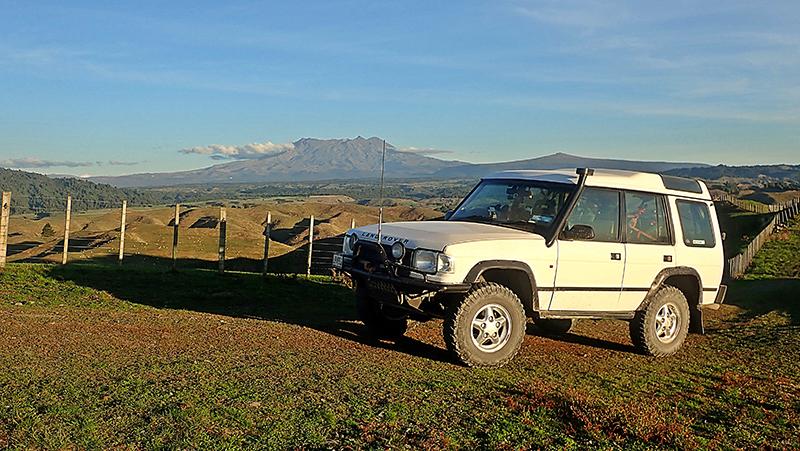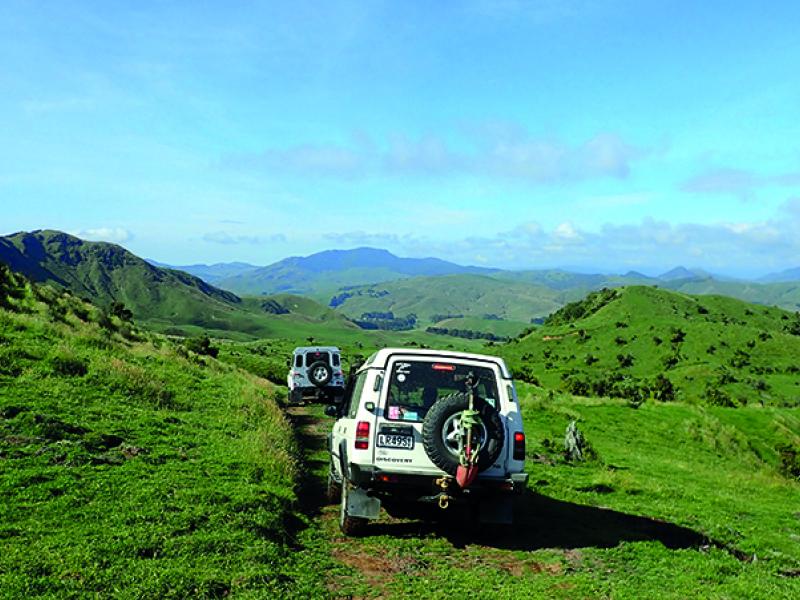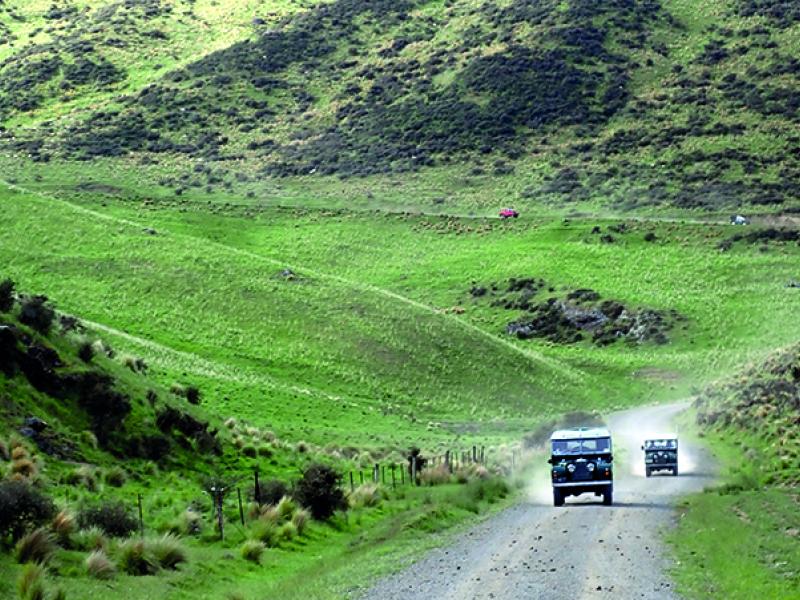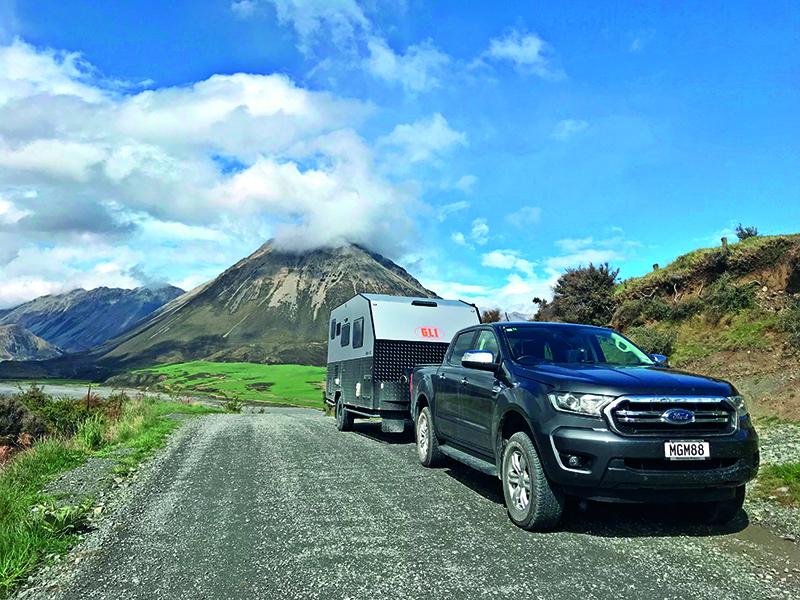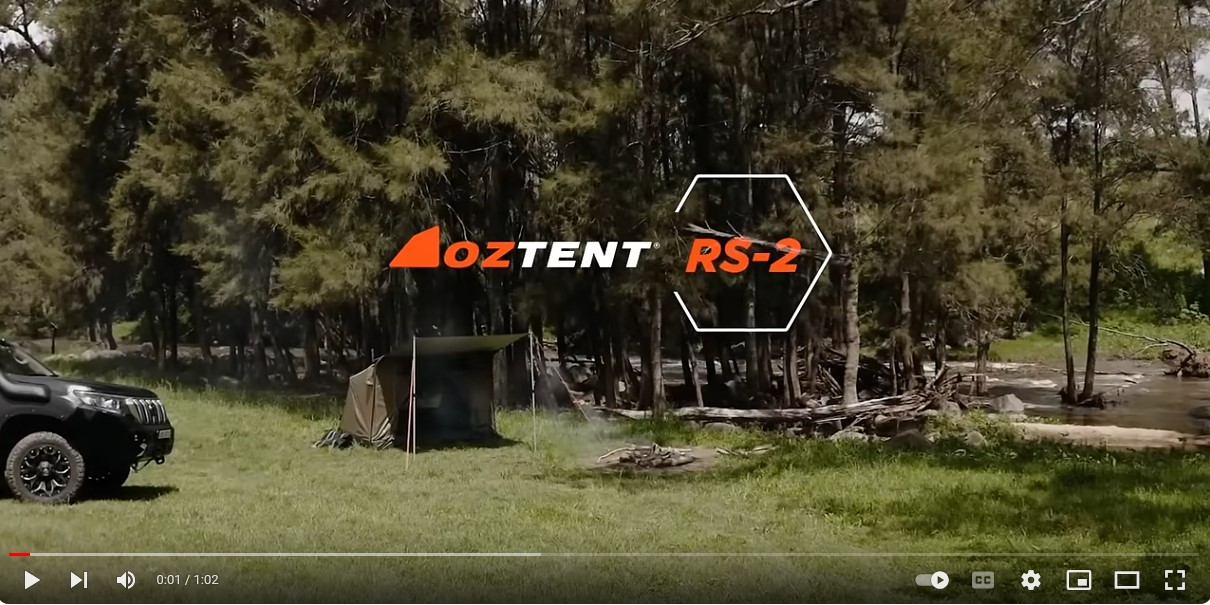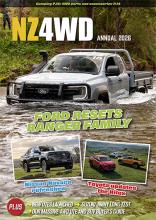The north vs south debate continues
Regular contributor Kevin Isemonger is a North Islander – but he sees the beauty and benefit of both our main islands for the 4WD fraternity.
As I’ve mentioned previously, I travel all over New Zealand as a telecommunications contractor checking cell and wireless broadband sites. The Government broadband rollout is pushing high speed internet access into some of the most remote parts of the country, both north and south It is a privilege to have a legitimate reason to travel up back roads and valleys on ‘official business’.
I have read a lot of books on the history of large sheep stations and gold exploration in the late 19th and early 20th century down the backbone of the South Island and also visited many of the areas I have read about – but it wasn’t until I attended a few of the ‘Mahia Hunt Club’ ‘Hereworth’ and ‘Motu School’ fund raiser safaris on the east coast of the North Island that I realised that the South Island doesn’t have a monopoly on vast sheep stations.
For many people the South Island is ‘a lovely place to visit – but I wouldn’t want to live there’ with the North Island having 24 people per square kilometre and the southern offshore island having only 4.5 people per square kilometre. To put this in perspective, two of Auckland’s suburbs – Auckland CBD and Manukau – have over 110,000 more people than the entire South Island! The South Island is 30 per cent bigger than the North, but the South only has 30 per cent of the population.
There is a great website set up for tourists (remember those?) called ‘First Light Travel’ that says of the North Island “Think white sand beaches, volcanoes, hot springs to soak in, boiling geysers and the subtropical Winterless North.”
South Island: “Think snowy mountains, giant glaciers and glacier-carved fiords, phenomenal alpine views and winter sports.”
For me, my personal desire to live somewhere is inversely proportional to the size of the ‘wood-shed’!
What this creates in the South, is a vast uncultivated, barren, depopulated landscape that form the basis of the stunning array of photos provided to magazines, movie sets and Instagram posts.
But this is changing. An example of the changing vista of the south is a before and after photo of the upper Clutha valley around Bendigo. 30 years ago, this valley was a sunburnt rabbit infested photographers paradise – but following the flooding of the valley by Lake Dunstan, improved cultivation, stunning wineries frequented by tourists and the expanding residential boundaries of Albert Town and Cromwell/Pisa – are the days of the southern wilderness numbered? Who knows, someone may even build an airport right in the middle of it all. Oh wait… they are: Tarras.
Because of the changing pressures on these wilderness areas, special interest groups push for the locking up of vast tracks of remote areas in ‘Conservancy areas’ – only accessible to the small (and mostly foreign) numbers of cash paying-‘tourists’.
For me, the North Island has another form of cancer – the advent of the ‘Carbon Farmers’ who are turning stunning pastoral land from the King Country to the East Cape, into horizons of carbon-absorbing pine trees. Since these carbon farms will not be cultivated, so require no care or maintenance – there are no people, so the small rural communities die off. It is similar to when the Labour Government of the 1980s sold off the Public Works, Telecom, Forest Service and Electricity Departments – small town New Zealand shut down and moved to the city.
So – the question is, who has the best tracks? It all comes down to your idea of the perfect track, climate and timing.
Which brings me to the north. On a recent Series 1 Land Rover run up the East Coast, and a ‘high-site’ work trip through the King Country, I shared the road with large numbers of logging trucks and road crew vehicles carrying crushed rock to patch the roads damaged by the loggers. Driving through the back of Tokomaru, or Aria I passed many derelict, abandoned homesteads and sheds surrounded by pines. The houses were made of wood being the dominant building material of the region.
The depopulation of these areas is recent, when compared with the ‘Soldier Rehab’ communities of the inland Whanganui and Taranaki regions – abandoned due to the harshness of the environment and poor soils – not unlike ‘Central’ but with the difference of encroaching bush as opposed to barren rock-blasted plains of the Rock and Pillar Range.
The other interesting move is the purchase of large stations by iwi, corporates and investment companies. A recent trip up the Waikura valley revealed that the Swiss-based Monte Capital has purchased the last station at the head of the valley, Te Kumi. On the Motu 4WD Safaris, we have been very fortunate to gain access to several stations in the Waikura Valley – with the exception of Te Kumi. With Monte Capital’s purchase of Te Kumi in 2019 – we were able to drive further up the valley on well-maintained roads and there are plans to open these stations up more to public access for recreational purposes, unlike our poorly-funded Department of Conservation which is busily locking up access to save money.
As mentioned above, I enjoy the charitable ‘tag-along’ runs that occur all over the North Island every safari season, and would relish the chance to attend similar events in the south – but there aren’t any on a national level like the ‘Hereworth’ and ‘Motu’ which attract participants from as far south as Dunedin. Yes: southerners coming north for off-road trips.
But Kev – which island has the best tracks? It depends on what you are into, I guess. You are more likely to get away with going on a trip in a ‘shiny’ in the South Island than you are in the North. Wide open spaces on braided rocky valleys versus jungle and greasy clay tracks – but whatever your preference – use it or lose it.


